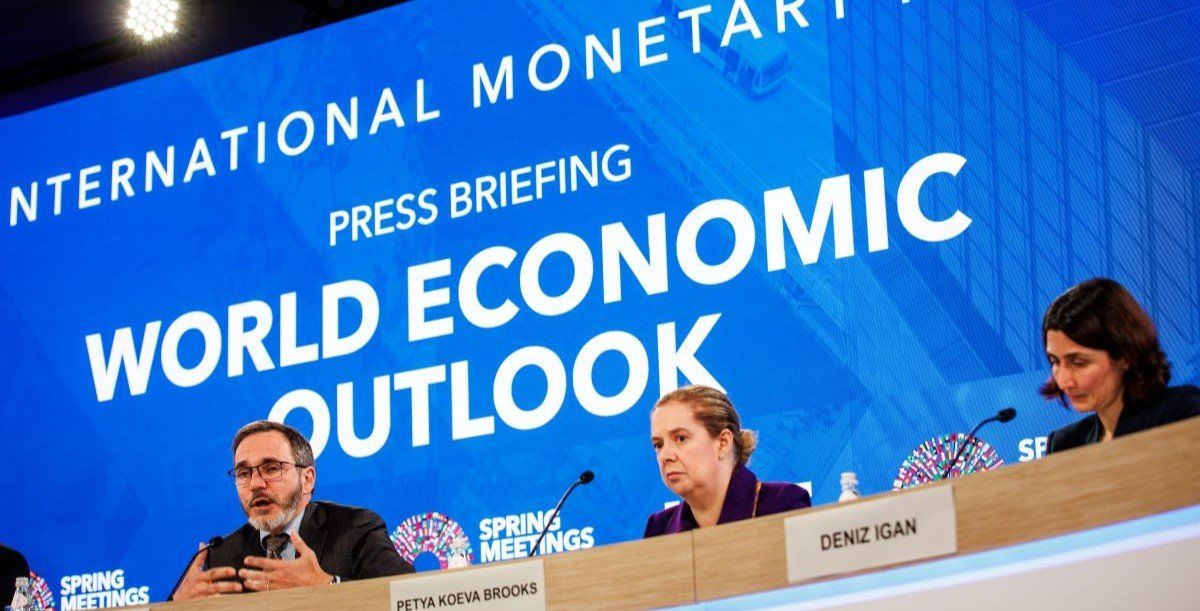“Just since January, we’ve entered into a new era,” IMF’s Chief Economist Pierre-Olivier Gourinchas told the press Tuesday at the Spring Meetings of the International Monetary Fund and World Bank. He explained why the IMF had just downgraded global economic growth expectations for 2025, from 3.3% to 2.8%, and global trade growth by more than half, from 3.8% last year to 1.7%.
Why? Global tariff rates are at their highest level since the Great Depression, following Donald Trump’s imposition of a 10% tariff on nearly all imports, along with duties of at least 145% on Chinese goods entering the United States. In a closed-door session with investors at a JP Morgan conference on Tuesday, US Trade Secretary Scott Bessent said that while the US will eventually de-escalate the trade war with China, negotiations with Beijing have yet to begin — and the process, he warned, will be a “slog.”
But an eventual de-escalation won’t alleviate concerns. “Beyond the tariffs themselves, the surge in policy uncertainty — related to trade policy but also more broadly — is a major driver of the economic outlook,” Gourinchas said. As a result, the US saw the sharpest downgrade among wealthy economies, with its expected 2025 growth falling from 2.7% to 1.8%.
Gourinchas notes that the downgrade could be temporary — if tariffs are rolled back and policy stability returns — but the IMF has raised the likelihood of a US recession this year to 40%, up from 25%.
All eyes are now on signals from the White House. Anticipation is building for Wednesday, when the Trump administration is expected to officially weigh in — and potentially upend the conversation. The administration has been hostile to international organizations like USAID and the United Nations, and some fear that the World Bank or the IMF could be next on the chopping block. Bessent is set to address the Institute of International Finance in the morning, followed by a high-stakes dinner with G20 leaders that evening.
GZERO will be watching to see how he responds to the IMF’s downgrade — and whether he offers any guidance to the institution itself. Some expect the Trump administration to urge the IMF to return to its traditional focus on balance of payments and debt crises, moving away from more progressive initiatives like supporting climate adaptation or promoting gender equality.
